Nyheter
Additional cuts is positive for the market and a gift to US/Canada
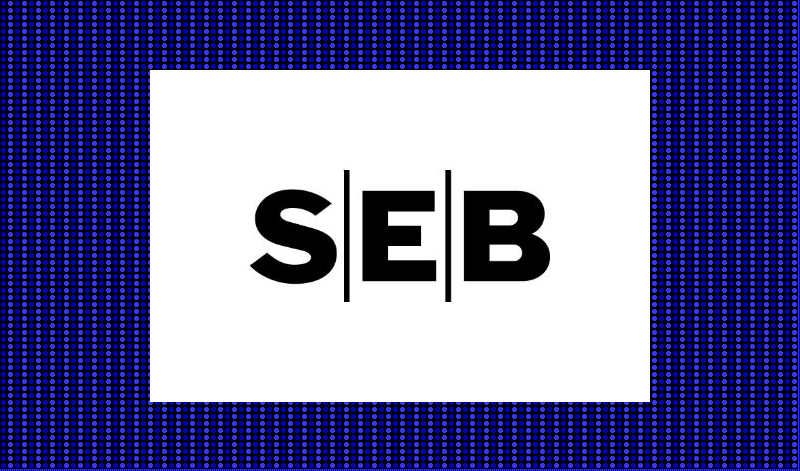

Additional cuts of 1.2 m bl/d in June from Saudi/Kuwait/UAE yesterday failed to rejoice the oil market and the Brent crude oil price fell 4.3% instead. Today though oil prices are firming a little but the price action (Brent) seems to be centered around the $30/bl mark right now. A depressing thought for OPEC+ must be that side-lined production in the magnitude of 3.5 – 4.5 m bl/d in the US/Canada will be the first to reap the rewards of the production cuts by OPEC+.

The Brent crude July contract yesterday moved to an intraday high of $31.47/bl (+1.6%) on the announcement that Saudi Arabia will cut an additional 1 m bl/d in June with Kuwait and UAE also chipping in additional cuts of about 100 k bl/d each. The joy didn’t last and in the end the contract fell back 4.3% on the day to a close of $29.63/bl along with negative equities and concerns over renewed virus outbreaks.
This morning Brent is inching 1.7% higher to $30.1/bl with the June WTI contract a little bit feistier gaining 2.7% to $24.8/bl. Overall market sentiment is on the negative side with lower equities and metals so oil is mostly going up on its own today. Market is obviously far from certain that the additional cuts announced yesterday will be able to drive the oil price materially higher but is today the conclusion that yes, the additional cuts are naturally positive on the margin.
The announcement yesterday was that Saudi/Kuwait/UAE will together make an additional 1.2 m bl/d cut in June versus already pledge cuts with Saudi cutting 1 m bl/d more to 7.5 m bl/d, Kuwait 0.08 m bl/d to 2.1 m bl/d and UAE 0.1 m bl/d to 2.35 m bl/d. Political pressure from the US, strained state finances in Saudi/Kuwait/UAE and a wish to re-balance the oil market and revive oil prices as quickly as possible lay behind the announcement.
It is very difficult to cut production with good results if you haven’t got a tailwind of strengthening oil demand to help you. The demand part of the equation is still a big uncertainty. Oil demand is now naturally coming back from the abyss in March/April as we get gradual reopening. But these re-openings look like they will be riddled with start/stop issues as virus infections blossom up again. How fast and how far back towards normal demand we can get is today the biggest uncertainty and a key ingredient for OPEC+ success. But demand will of course rebound both back to 100 m bl/d and beyond eventually. The key question now is how much and how fast.
But deepening production cuts now is also tricky for OPEC+. If they are successful in balancing the market, flattening the crude oil price curve and thus drive the front-month crude oil price higher then this will likely very quickly revive the 3.5 – 4.5 m bl/d of side-lined supply in the US & Canada. Thus, all Saudi/Kuwait/UAE will have achieved by cutting an additional 1.2 m bl/d is to let side-lined production in the US & Canada back into the market. Again, without being able to drive the oil price much higher.
This poses a key question: Who shall be first out to put volumes back into the market as demand revives? Side-lined US & Canadian oil wells or OPEC+ production cuts? Right now, it looks like OPEC+ or at least Saudi/Kuwait/UAE are following a strategy where shut-in production outside of OPEC+ are to be placed back in the market first.
Then on to the next step. Will OPEC+ then hold on to production cuts in order to opt for price rather than volume once the oil price moves back to $50/bl thus once again chase the oil price to $60/bl and $70/bl by holding back supply? If so, this would again give preference to shale oil volume rebound in exchange for a higher oil price to OPEC+. Such a next step looks much less likely because Russia made it very clear in March that they are basically done chasing price in exchange for gradual loss of market share to OPEC+ and more market share to US shale oil.
It is hard to conclude otherwise than that the global oil market is gradually mending with rebounding demand on the one hand and cuts to production, lost supply or shut in supply on the other.
But a sense of futility must clearly be felt by Saudi/Kuwait/UAE the moment in time when 3.5 – 4.5 m bl/d of side-lined production in the US/Canada are placed back into the market in response to their deepening production cuts. Because that is likely now what is going to happen as they ”succeed” with their cuts.
Forward crude oil curves for Brent and WTI. As the oil market starts to balance and inventories starts to draw down the front-end of these curves will move higher and the curves will flatten. This will help to revive side-lined production in the US/Canada in the magnitude of 3.5 – 4.5 m bl/d.
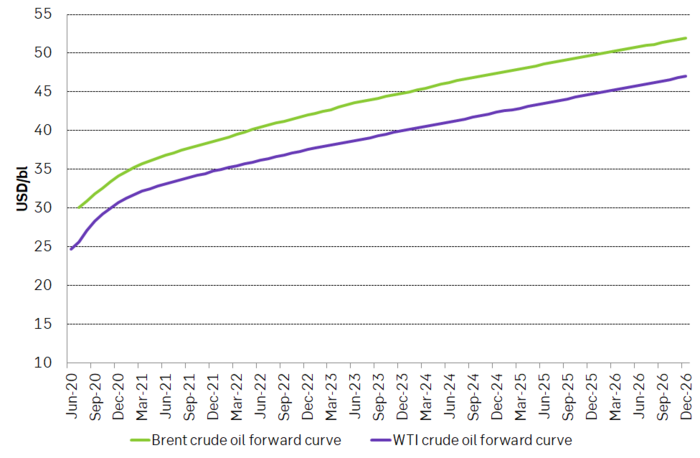
Nyheter
Guld kostar för första gången någonsin 3600 USD per uns

Priset på guld har denna kväll svensk tid nått 3600 USD per uns för första gången någonsin. Nedanstående graf är från handeln på CME-börsen i USA.
Samtidigt som länder arbetar med att pressa ner den korta räntan så fortsätter de långa räntorna, dvs obligationer på 10-30 år, att stiga kraftigt. Och de långa räntorna är inte höga för att marknaden förväntar sig att ekonomin ska växa kraftigt på lång sikt, utan för att den förväntar sig att inflationen kommer att stiga snabbare än den nominella avkastningen. Det är ett förhållande som skriker köpläge i guld.
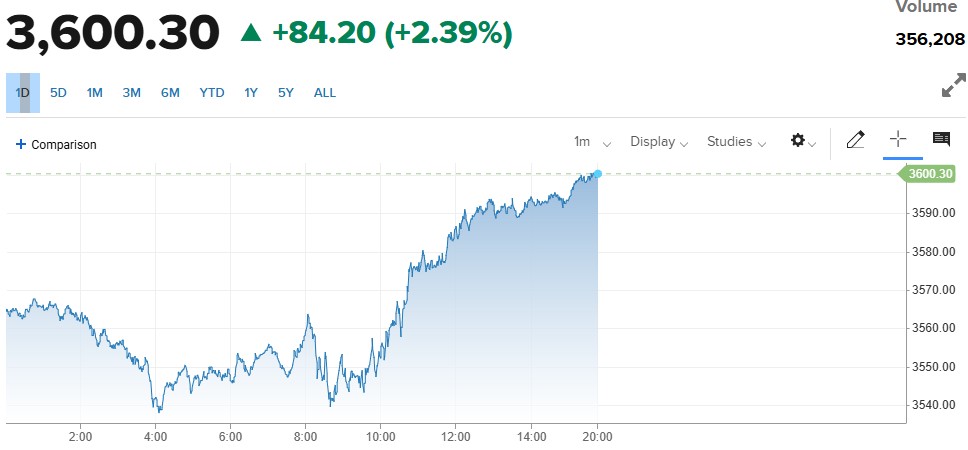
Nyheter
Ombytliga elpriser på elmarknaden
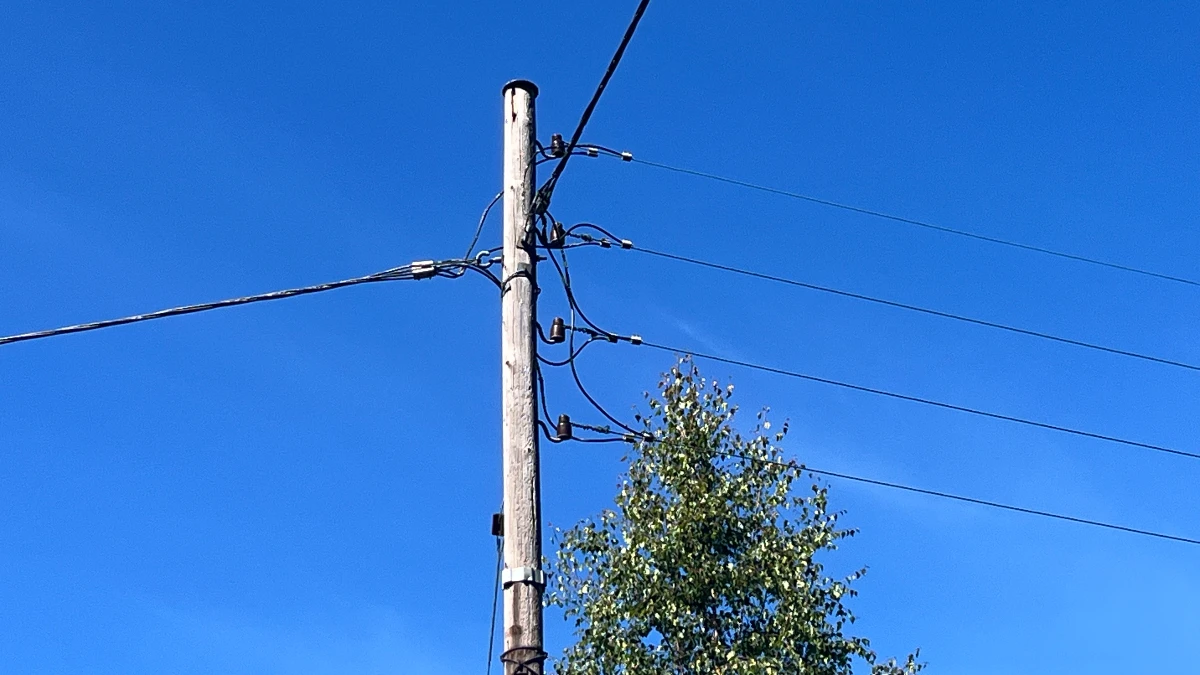
Försommarens låga elpriser vände i juli och fortsatte uppåt under augusti, vilket även märks nu när den första höstmånaden inleds. Vädret, tillfälligt minskad elproduktion och oförutsedda händelser gör stor skillnad på elpriset.

Sommaren inleddes med historiskt låga elpriser. I norra Sverige, i elområde 1, noterades ett medelpris på 3,03 öre/kWh för juni månad, den lägsta nivån sedan elprisområden infördes 2011. Marknaden förväntade sig fortsatt låga elpriser men elpriset under juli och augusti blev nästan dubbelt så högt som väntat. Samtidigt har prisskillnaderna mellan norr och söder fortsatt att öka.
– Oförutsägbarheten gör det väldigt utmanade att förutspå elpriserna. Det är många faktorer som bidrar till dagens varierande priser. Främst vädret men även händelser som är svåra att förutspå påverkar elpriset. I ett historiskt perspektiv ligger elpriserna ändå på normala nivåer och blir hösten blötare än vanligt kommer det att verka stabiliserande, säger Jonas Stenbeck, privatkundschef Vattenfall Försäljning.
Den nordiska kärnkraften har just nu cirka 65 procent av sin installerade kapacitet i drift. I Sverige är tre av sex reaktorer avställda. I kombination med mindre vind- och vattenkraft skapar det ett underskott i elproduktionen vilket driver upp elpriserna, framförallt i elområdena 3 och 4, södra Sverige.
| Medelspotpris | Augusti 2024 | Augusti 2025 |
| Elområde 1, Norra Sverige | 8,86 öre/kWh | 23,79 öre/kWh |
| Elområde 2, Norra Mellansverige | 8,51 öre/kWh | 23,15 öre/kWh |
| Elområde 3, Södra Mellansverige | 8,54 öre/kWh | 48,77 öre/kWh |
| Elområde 4, Södra Sverige | 45,93 öre/kWh | 73,48 öre/kWh |
Nyheter
Silverpriset når 40 USD, högsta sedan 2011

Silverpriset steg precis över 40 USD per uns, vilket är den högsta nivån sedan 2011. Silverpriserna stiger på grund av ett betydande och långvarigt underskott i utbudet, där efterfrågan konsekvent överstiger produktionen. Drivkraften bakom detta är en stark industriell konsumtion, särskilt kopplad till energiomställningen och gröna teknologier som solenergi. Geopolitiska risker och global osäkerhet har dessutom ökat metallens attraktionskraft som en trygg tillgång, samtidigt som marknadens förväntningar på framtida tillväxt och efterfrågan bidrar till att stödja priserna. En svagare amerikansk dollar gör även att silverpriset i USD har lättare att stiga.
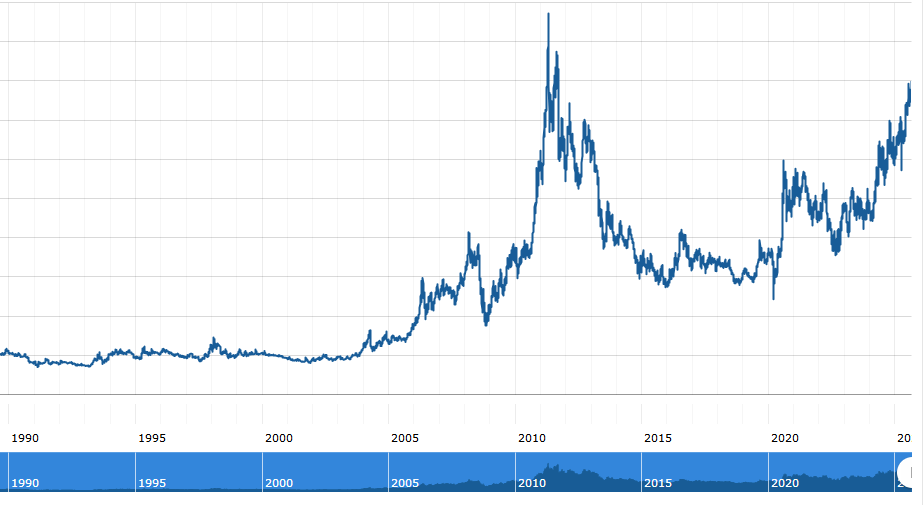
-

 Nyheter3 veckor sedan
Nyheter3 veckor sedanOmgående mångmiljardfiasko för Equinors satsning på Ørsted och vindkraft
-
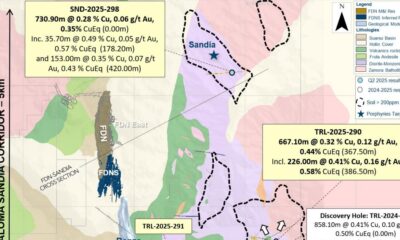
 Nyheter4 veckor sedan
Nyheter4 veckor sedanLundin Gold hittar ny koppar-guld-fyndighet vid Fruta del Norte-gruvan
-

 Nyheter2 veckor sedan
Nyheter2 veckor sedanMeta bygger ett AI-datacenter på 5 GW och 2,25 GW gaskraftverk
-

 Nyheter4 veckor sedan
Nyheter4 veckor sedanGuld stiger till över 3500 USD på osäkerhet i världen
-

 Analys3 veckor sedan
Analys3 veckor sedanWhat OPEC+ is doing, what it is saying and what we are hearing
-

 Nyheter4 veckor sedan
Nyheter4 veckor sedanAlkane Resources och Mandalay Resources har gått samman, aktör inom guld och antimon
-
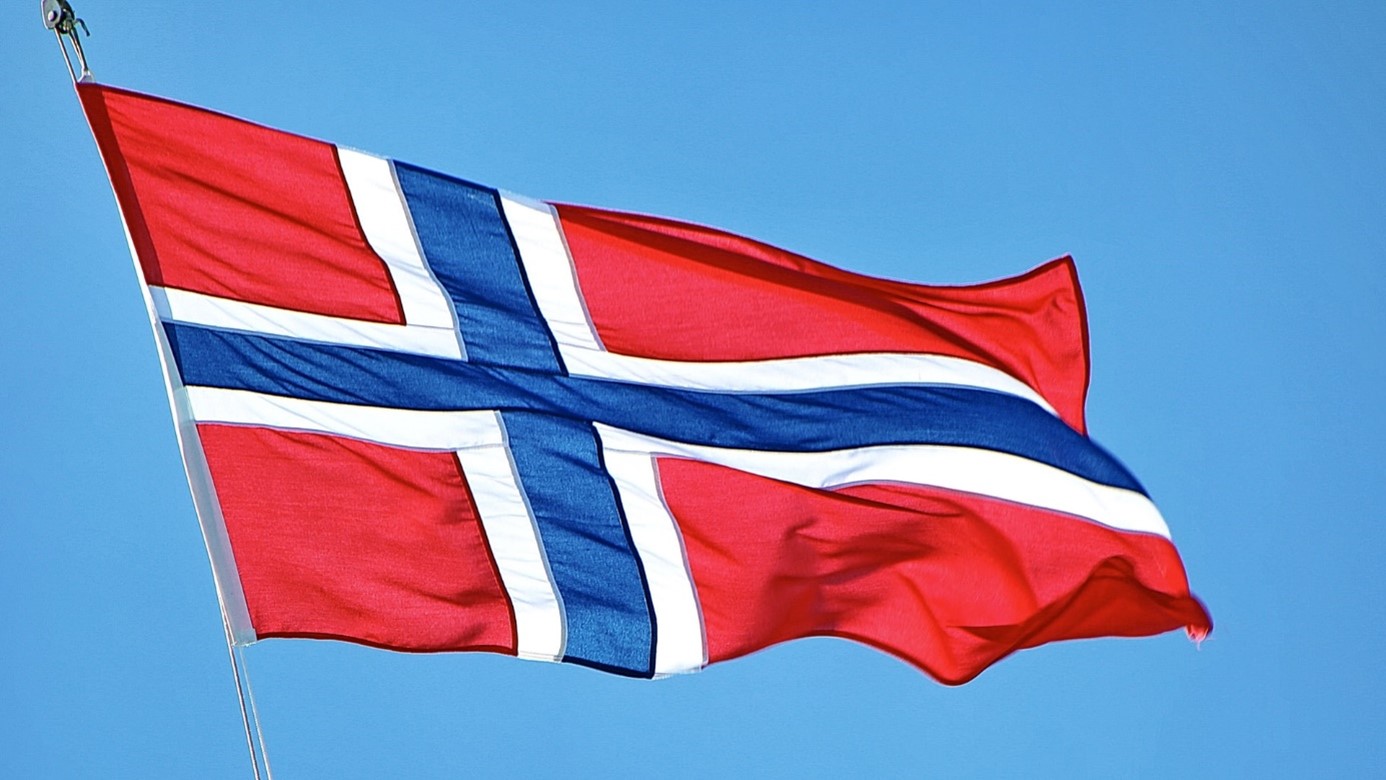
 Nyheter2 veckor sedan
Nyheter2 veckor sedanAker BP gör ett av Norges största oljefynd på ett decennium, stärker resurserna i Yggdrasilområdet
-

 Nyheter4 veckor sedan
Nyheter4 veckor sedanLyten, tillverkare av litium-svavelbatterier, tar över Northvolts tillgångar i Sverige och Tyskland






